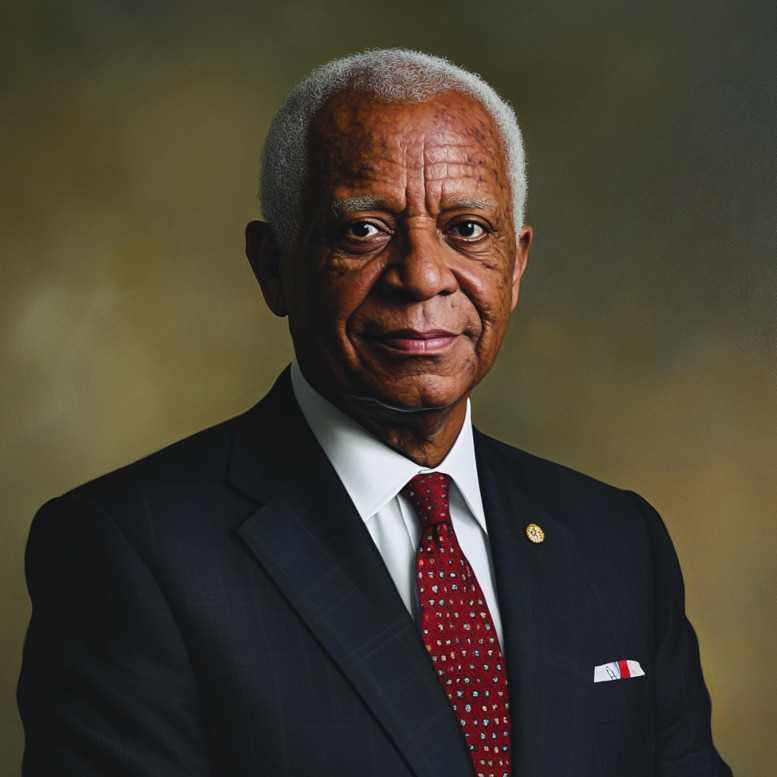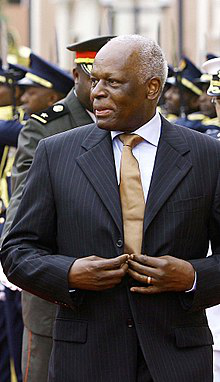


José Eduardo dos Santos (1942–2022) was an Angolan politician who served as the President of Angola from 1979 to 2017, making him one of Africa's longest-serving leaders. His presidency was marked by Angola's transition from a war-torn country emerging from decades of colonial rule and civil conflict to a major oil producer with significant economic growth, albeit also characterized by widespread corruption, inequality, and authoritarianism. Dos Santos played a central role in shaping modern Angola, but his legacy is deeply complex, reflecting both his contributions to national reconstruction and the criticisms of his prolonged rule.
Birth and Background: José Eduardo dos Santos was born on August 28, 1942, in Luanda, the capital of Angola, which was then a Portuguese colony. He came from a humble background, with his father working as a bricklayer. Dos Santos was one of the first Angolans to gain a scholarship to study abroad, which would later influence his political career.
Education: Dos Santos was sent to the Soviet Union (USSR) in the early 1960s to study engineering at the Azerbaijan Oil and Chemistry Institute in Baku, where he specialized in petroleum engineering. His time in the USSR exposed him to Marxist-Leninist ideology, which aligned with the socialist leanings of the liberation movement he would later join. During his time in the Soviet Union, he also received military training.
Joining the MPLA: In 1961, during Angola’s war for independence from Portugal, dos Santos joined the Popular Movement for the Liberation of Angola (MPLA), a Marxist-oriented liberation movement. The MPLA was one of several groups fighting for independence and later became the dominant force in Angola's post-colonial government.
Military and Political Career: Dos Santos played an active role in the MPLA’s military wing during the struggle for independence, eventually rising to the rank of commander. Following Angola’s independence in 1975, he held various positions within the MPLA-led government, including Minister of Foreign Affairs and Minister of Planning. His rise within the party was rapid, and he was considered a loyal and effective member of the MPLA’s leadership.
Becoming President: After the death of Angola’s first president, Agostinho Neto, in 1979, José Eduardo dos Santos was appointed as his successor by the MPLA. At the age of 37, dos Santos assumed the presidency during a period of intense internal and external conflict, as Angola was embroiled in a brutal civil war between the MPLA and rival factions, primarily the National Union for the Total Independence of Angola (UNITA), backed by the United States and apartheid South Africa.
Civil War and Peace Process: Much of dos Santos's early presidency was dominated by the civil war, which devastated Angola and claimed hundreds of thousands of lives. The conflict was part of the larger Cold War dynamics, with the MPLA supported by the Soviet Union and Cuba, while UNITA received backing from the U.S. and South Africa. After the Cold War ended and external support for the warring factions waned, dos Santos eventually negotiated peace with UNITA. The civil war officially ended in 2002 after the death of UNITA leader Jonas Savimbi, leading to a period of reconstruction and economic growth in Angola.
Oil Boom and Economic Growth: Under dos Santos’s leadership, Angola became one of Africa’s largest oil producers, benefiting from substantial oil revenues, particularly during the oil boom of the early 2000s. These revenues funded major infrastructure projects and helped to rebuild the country after the civil war. However, the wealth generated from oil did not translate into broad-based development. Instead, Angola became one of the most unequal countries in the world, with a significant portion of the population living in poverty while a small elite, closely associated with dos Santos and the MPLA, accumulated vast wealth.
Authoritarian Rule and Corruption: Dos Santos’s presidency was marked by increasing authoritarianism. He maintained tight control over the government, military, and economy, using his power to suppress political opposition and dissent. The media was heavily controlled, and political freedoms were restricted. Widespread corruption became a hallmark of his rule, with allegations that dos Santos and his inner circle, including members of his family, embezzled billions of dollars from state coffers. His daughter, Isabel dos Santos, became Africa’s richest woman, a status widely attributed to her access to state resources and favorable deals during her father’s presidency.
Political Reforms and Succession: Facing increasing domestic and international pressure, dos Santos began to implement some political reforms in the late 2000s, including the introduction of a new constitution in 2010, which abolished direct presidential elections and strengthened the powers of the presidency. In 2016, dos Santos announced his intention to step down from power, and in 2017, he was succeeded by João Lourenço, the MPLA’s candidate, who was seen as a loyalist at the time.
Stepping Down and Aftermath: After stepping down, dos Santos retained a significant influence over the MPLA and the Angolan government. However, his successor, João Lourenço, soon began to distance himself from dos Santos and launched an anti-corruption campaign targeting members of the former president’s inner circle, including Isabel dos Santos. This move was seen as an effort to consolidate power and address widespread public dissatisfaction with the levels of corruption during dos Santos’s rule.
Health Issues and Death: Dos Santos spent much of his post-presidency years between Angola and Spain, where he received medical treatment. His health deteriorated significantly in the years following his departure from office, and he passed away on July 8, 2022, in Barcelona, Spain, at the age of 79.
Legacy: José Eduardo dos Santos leaves behind a complex and controversial legacy. On one hand, he is credited with leading Angola through the end of a long and destructive civil war and overseeing significant economic growth, particularly through the development of the oil sector. On the other hand, his presidency is widely criticized for its authoritarianism, human rights abuses, and the entrenchment of corruption and inequality. The concentration of wealth among the political elite, particularly his family, while many Angolans remained in poverty, has tainted his legacy in the eyes of many.
Impact on Angola: The legacy of dos Santos continues to shape Angola’s political and economic landscape. The anti-corruption efforts initiated by his successor have led to a reevaluation of his years in power, with many Angolans demanding greater accountability and transparency. The challenges Angola faces today, including economic diversification, governance reform, and addressing social inequality, are in many ways rooted in the policies and practices of the dos Santos era.
José Eduardo dos Santos was a dominant figure in Angolan politics for nearly four decades. His leadership during and after the civil war played a crucial role in shaping modern Angola, but his long tenure is also associated with significant challenges, including corruption, authoritarianism, and inequality. Dos Santos’s legacy is a reflection of the complexities and contradictions of his presidency, leaving a lasting impact on Angola and its future trajectory.

We use cookies
We use cookies and other tracking technologies to improve your browsing experience on our website, to show you personalized content and targeted ads, to analyze our website traffic, and to understand where our visitors are coming from. Privacy Policy.